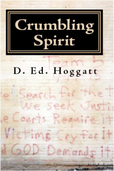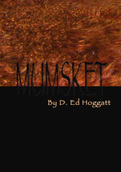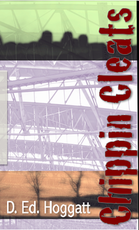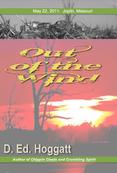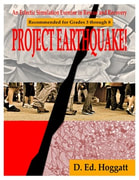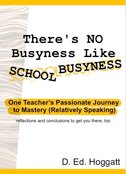He wondered why he was awake. He need not open the warehouse; it was Christmas morning. Humbug! A big waste of time. A great excuse for bigwigs to celebrate their wealth with a ridiculous waste of their affluence. What time was it? He had gone straight to bed when he had gotten home from work. With no timepiece he knew not of the hour. He only knew it was the top of the hour…if the bell ringer of the church was correct. His eyelids were still heavy, his steps even heavier across the splintery floor, his head pounded with every beat of his heart.
Suddenly the walls flashed brightly and disappeared altogether. Scrooge was caught off balanced by the flash and fell to his knees, his yelp extinguished by the whooshing sound of a warm wind around him. Instantly, he was warmed. Still in his working clothes from the previous day, Scrooge rose to his feet once again and looked around himself: an empty and brightly lit room, daylight through high windows, and a solitary figure standing quite close to him. He had not detected the entrance of the figure, nor had he sensed its presence at all.
It is difficult to describe the ghost of a season or a holiday; Dickens tried, with all of this talk of glitter and fluctuating shapes, multiple arms, a youngster who seemed have great age. Whatever the specter appeared to be, suffice to say that Scrooge immediately knew what it was.
“Are you the spirit of which my former boss foretold?” he asked, rhetorically.
“I am.” The voice was little more than a breath, sounding like a mixture of sled runners on ice, fires crackling, and small bells tinkling.
“What sort of spirit are you?” asked Scrooge. “A nice one or an evil one?”
“I am the Ghost of Christmas Past.”
“All Christmases?”
“Impossible. I am the Ghost of Your Christmases Past.”
“Mine alone?”
“Yes.”
“I see no need for you. I have already lived my past,” said Scrooge. The ghost lit up with energy from within, and Scrooge had to overt his eyes. “I cannot look upon you, spirit,” he said.
“My appearance is made of the lights of every Christmas candle, Ebenezer. If I am more than you can withstand, then look at this instead.”
Without the wave of a hand, the empty room shimmered and blurred. The wood melted away before the old clerk until he found himself standing in an open field. There was a stiff frost on the grass, yet he was still as warm as he had been. Sans coat or sweater, Scrooge felt uncharacteristically comfortable, but remained troubled in his soul.
“What is this place?” he asked the ghost.
“Follow me,” the ghost answered. They walked through the frosty pasture, leaving nary a footprint in the snow. Coming upon a dirt wagon road, Ebenezer thought he recognized something.
“I know this place,” he said. “That tree is my hiding tree. It is the tree where I hid my treasures – when my playmates and I would pretend to be pirates.” They traced the steps of the past, down the packed dirt and swales of the wagon road, Scrooge feeling more energy to walk with every stride. “This road,” he added, “leads to my boyhood home.” The ghost nodded approval at the recognition. Seeing the farmhouse and outbuildings in the distance, Scrooge’s countenance improved.
“It was a home – not merely a house – spirit. My parents made it so.”
The two figures remained on their route. Approaching the English barn, the ghost beckoned the old man to look inside. The two walked straightaway through the peeling whitewashed walls where the dust danced in the light beams that shone through the cracks. In one of the stalls a middle-aged man stood tall, leaning on a hayfork. His son, a younger Ebenezer, laughed as he tried to pitch hay with his own fork.
"You must practice, my boy. These are the daily chores of a farm.”
“Yes, I know, Papa,” replied young Ebenezer.
Our Scrooge, the elder man who accompanied the spirit, hid in the doorway of the tack room. “Do not worry, man,” said the ghost. “They can neither see nor hear us. This scene has already happened, in the past. You cannot change the conversation or the actions.” Scrooge, not quite trusting the ghost, slowly emerged to watch more fully.
“Papa, I will grow, will I not?” asked the boy.
“Of course, you will, Eb. You shall be a big, strong man someday. I can imagine you owning a farm larger than this one. Perhaps you will even own this one.”
“I do not want to own this one,” said the boy. His brow wrinkled as he said it.
“Why not?” asked his father.
"I do not want to take your farm away from you, Papa.” At this, the father chuckled.
“I love you, my boy. Let us hitch Ol’ Sal and take our yearly ride.”
“It’s time, Papa?”
“It is.”
“Finally!” The boy giddily walked through our Scrooge to gather the appropriate tack.
“What has you so excited, Ebenezer?” asked the ghost.
"Every year for Christmas, my father took me for a ride into the woods. I do not mind telling you that it was my favorite activity of the year,” explained Scrooge. “Ah, I had forgotten the joy.”
“What was special about these rides?”
“It was just my father and I. He taught me to build a campfire. We roasted chestnuts. He allowed me to poke at the fire with a stick, sending sparks ascending into the sky. It was heavenly, spirit. Heavenly.” The old man looked to his feet and sniffed.
“What is that on your face, man?” asked the ghost. Scrooge wiped his eyes.
“Leave me alone. I do not want to see this any more,” said Scrooge.
“A scene of laughter and joy. Heavenly, you say. Yet you wish to leave.”
"A scene of the past, cruel phantom. Such memories are futile in the present.”
“Perhaps, sir, we should see more,” returned the ghost. “Let us go inside.”
Scrooge balked. “I would rather return to my cold bed.”
“Humor me. You have no choice.”





 RSS Feed
RSS Feed
